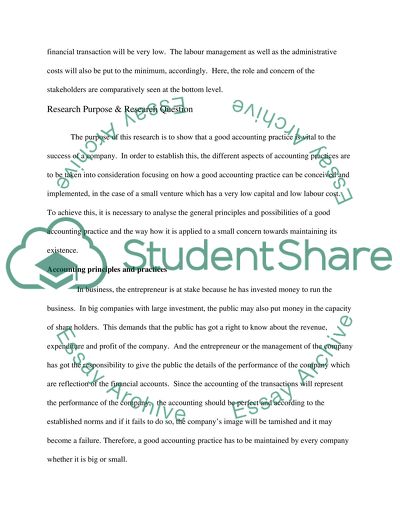Cite this document
(Good Accounting Practice Is Vital to a Companys Success Research Proposal, n.d.)
Good Accounting Practice Is Vital to a Companys Success Research Proposal. Retrieved from https://studentshare.org/finance-accounting/1554127-a-good-accounting-practise-is-vital-to-a-companys-success
Good Accounting Practice Is Vital to a Companys Success Research Proposal. Retrieved from https://studentshare.org/finance-accounting/1554127-a-good-accounting-practise-is-vital-to-a-companys-success
(Good Accounting Practice Is Vital to a Companys Success Research Proposal)
Good Accounting Practice Is Vital to a Companys Success Research Proposal. https://studentshare.org/finance-accounting/1554127-a-good-accounting-practise-is-vital-to-a-companys-success.
Good Accounting Practice Is Vital to a Companys Success Research Proposal. https://studentshare.org/finance-accounting/1554127-a-good-accounting-practise-is-vital-to-a-companys-success.
“Good Accounting Practice Is Vital to a Companys Success Research Proposal”, n.d. https://studentshare.org/finance-accounting/1554127-a-good-accounting-practise-is-vital-to-a-companys-success.


